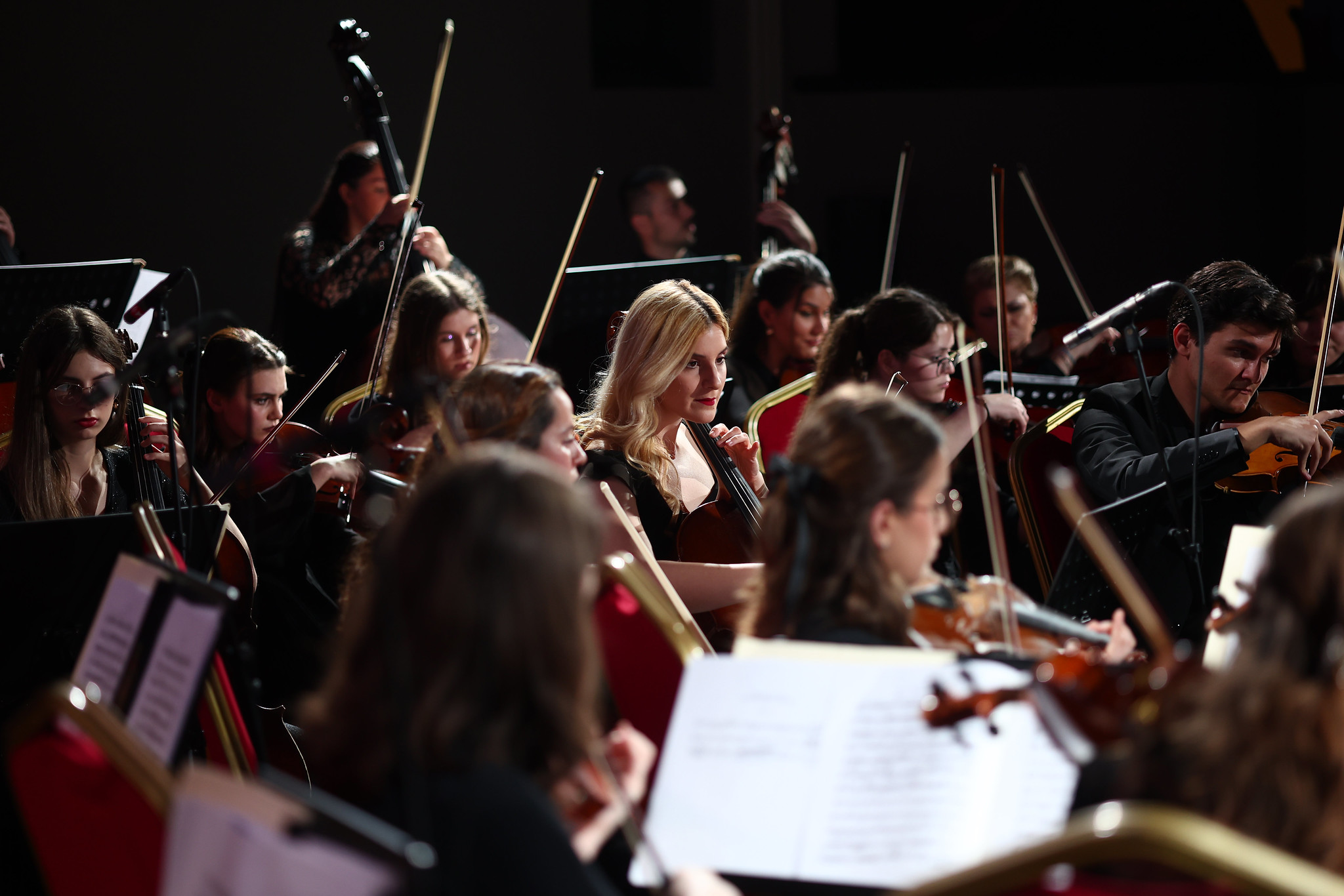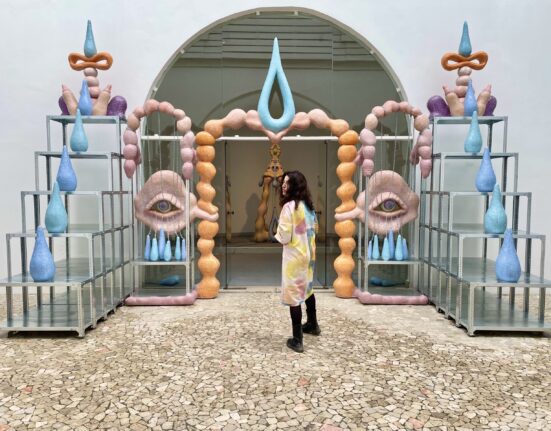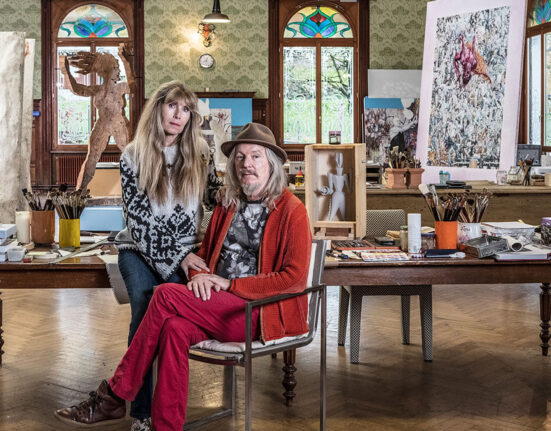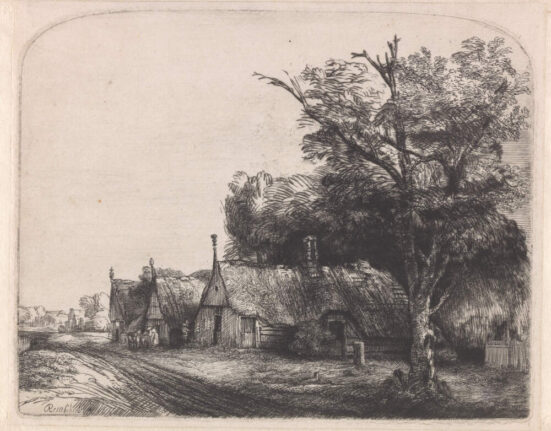Marta Dettlaf was born in Gdansk in Poland, a city rich in culture, history and best known from the novel “The tin drum” of the German Nobel Prize winner, Günter Grass. Growing up in a town where architecture styles combine cultures, ethnicities, historical moments and different eras, embracing music and discovering new cultures has been her way of living. Among 100 hundred artists from all over Europe, she was the first violin of Western Balkans Youth Orchestra’s concert on Europe Day in Albania. The orchestra itself is a platform for young musicians which work across national, ethnic, religious, and cultural divides.
“We connect through music and even why we don’t speak each-others languages, we can communicate through music. I found it wonderful the idea of connecting all these countries without exceptions. We come from different realities but we are now building something together, something bigger”, says Marta while her violin plays pieces from Albanian composers.
“The music was strong. I tried to imagine the places where it came from while playing. But despite the origin, we all share the same passion. It’s love which brought us together”, she notes.
Dettlaf was enthusiastic to be part of the orchestra since the beginning when she got the invitation. As Western Balkans Youth Orchestra seeks to unite the region’s youth, breaking down barriers and fostering long-lasting peace, its success depends on the artists, so first, it has to break down scepticism within it.
“At first I was sceptic. It was because of the history. I didn’t have any friends from Kosovo, Serbia or Albania. But then you meet artists from these countries and you understand we are the same people and we have so much in common. All of us belong to a new generation and we have to create a new history. We cannot change the past but we can change the future”, says Teodora Uskokovic, a musician from Montenegro who plays cello with WBYO.
The Europe Day concert marked a special step in cultures role to create bridges. Young artists from Albania, Bosnia-Herzegovina, Kosovo, Montenegro, North Macedonia, Poland, Netherlands, and Spain were at the same stage playing a programme which celebrated the diversity of Europe and Balkans. Among all the artists playing music, Serbian tenor Stevan Karanac sung arias from famous operas but also gave his voice to Albanian songs too.
“It is always so inspiring to participate in concerts that have some special purpose or message, and for me it was a great opportunity to perform for the first time in Tirana singing in Albanian language. I will just say that it was so emotional for me that I even cried during this powerful and amazing piece, as it had the ultimate message of love and music- that is a universal language of emotions that everyone can understand”, recalls Karanac who confesses to have needed a dictionary to understand the text and also the help of Maestro Desar Sulejmani for the Albanian song.
As artists from the region and Europe discovered Albania and its classical music, the concert was also a way to connect the country with young artists who have Albanian origins and live far away.
Mario Ruska plays clarinet, his parents are Albanian, he was born in Greece and lives in the Netherlands, where he studies at the Royal Conservatory of Hague. He plays clarinet as used to play his father and it’s the first time he comes in Tirana as an artist.
“It was so beautiful that young people came together and in such a short time and managed to accomplish a concert like that. Music can play a pivotal role in enhancing collaboration and creativity within a team. With the Western Balkans Youth Orchestra, we didn’t just play music, we managed to bring different cultures and people together and ‘break’ the borders between them”, he says.
The music moved the audience and created a synergy between artists and the spectators. Rehearsals and efforts can create a better future, and with a lot of work, the bridges can be solid.
It’s not usual to listen to an orchestra playing without its conductor, but WBYO managed to mesmerize the audience challenging itself. “I enjoyed the moment of playing together without conductor at the end. We really had to work together on that Hungarian dance and I feel we expressed the joyfulness of this wonderful project”, says Marta Dettlaf showing how collaboration can transform realities and possibilities.







